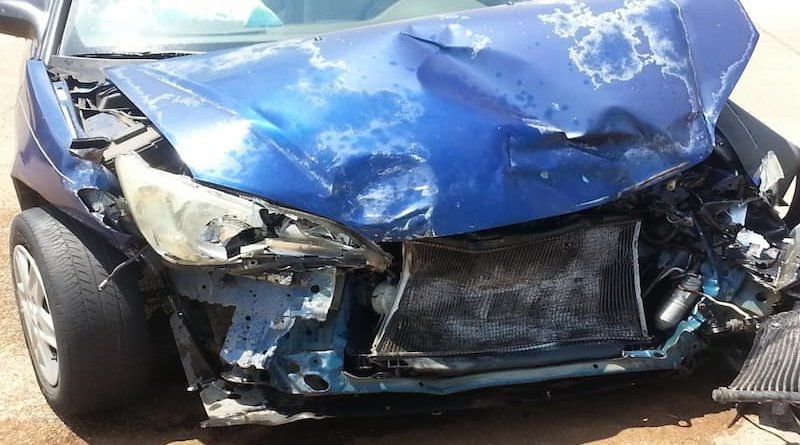Top 8 Factors That Determine Liability in Indiana Car Accidents
If you’ve ever been in a car accident in Indiana, you understand the complexity of determining liability. Accidents can happen for various reasons, and assigning blame isn’t always straightforward. In this article, with insights from an experienced Indianapolis car accident lawyer, we’ll delve into the top eight factors that play a crucial role in determining liability in Indiana car accidents. From the state’s legal guidelines to the specific circumstances of the accident, let’s explore the key aspects that shape the liability determination process.
Car accidents can lead to physical injuries, emotional distress, and financial burdens. Determining liability is crucial for ensuring that the responsible party takes accountability for their actions. In Indiana, several factors come into play when establishing liability.
Understanding Indiana’s Fault System
Indiana follows a “fault” or “at-fault” system for car accidents. This means that the party responsible for causing the accident is also liable for the resulting damages. This determination is pivotal for insurance claims and potential legal actions.
Traffic Laws and Regulations
Traffic laws exist to ensure the safety of all road users. Violations of these laws can significantly impact liability in an accident. If a driver disobeyed traffic regulations, it can affect their responsibility for the collision.
Police Reports and Eyewitness Accounts
Police reports provide an objective overview of the accident scene. Eyewitness accounts can offer valuable perspectives on the sequence of events. These pieces of evidence play a significant role in establishing liability.
Vehicle Damage and Accident Reconstruction
Examining the damage to the vehicles involved can help recreate the accident. Accident reconstruction experts use scientific methods to determine how the collision occurred, shedding light on the liable party.
Driver Behavior and Negligence
Negligent actions such as distracted driving, speeding, or driving under the influence can strongly impact liability. If a driver’s behavior directly contributed to the accident, they could be deemed liable.
Role of Comparative Fault
Indiana follows a comparative fault system. If both parties share a portion of the blame, liability may be divided accordingly. Understanding how this affects compensation is essential for accident victims.
Potential Presence of Third Parties
Liability might extend beyond the drivers involved. Manufacturers, mechanics, or government entities responsible for road maintenance could share some degree of responsibility in certain cases.
Insurance Coverage and Policies
Insurance policies and coverage limits play a role in determining how much compensation can be sought. If the liable party is underinsured, it can complicate the recovery process.
Conclusion
Navigating the landscape of liability determination in Indiana car accidents can be intricate. Considering factors like traffic laws, driver behavior, and the presence of third parties is essential. If you’ve been involved in an accident, understanding these factors can help you navigate the legal and insurance processes more confidently.
Frequently Asked Questions
Q1: What is Indiana’s approach to determining liability in car accidents?
A: Indiana follows an “at-fault” system, where the party responsible for causing the accident is considered liable.
Q2: How do traffic laws influence liability?
A: Violations of traffic laws can impact liability, as they indicate a driver’s failure to adhere to safety regulations.
Q3: Can both parties in an accident share liability in Indiana?
A: Yes, Indiana operates under a comparative fault system, where liability can be divided between both parties based on their degree of fault.
Q4: What role do insurance policies play in liability determination?
A: Insurance coverage and policy limits can affect the amount of compensation available for the victim of an accident.
Q5: Why is accident reconstruction important for liability determination?
A: Accident reconstruction helps recreate the sequence of events, aiding in determining how the accident occurred and who was liable.
Carla Joseph
 Carla Joseph is a renowned law writer who seamlessly blends her expertise in the legal field with her exceptional writing skills. With a legal degree and years of practice as a legal professional, Carla has dedicated herself to making the law accessible to a wider audience. Through her captivating articles and blog posts, she demystifies complex legal concepts and presents them in an engaging and relatable manner. Carla’s unique ability to combine her legal knowledge with a compelling writing style has earned her widespread recognition and respect. Her work not only educates readers but also inspires them to engage with the law, empowering individuals with a deeper understanding of their rights and obligations.
Carla Joseph is a renowned law writer who seamlessly blends her expertise in the legal field with her exceptional writing skills. With a legal degree and years of practice as a legal professional, Carla has dedicated herself to making the law accessible to a wider audience. Through her captivating articles and blog posts, she demystifies complex legal concepts and presents them in an engaging and relatable manner. Carla’s unique ability to combine her legal knowledge with a compelling writing style has earned her widespread recognition and respect. Her work not only educates readers but also inspires them to engage with the law, empowering individuals with a deeper understanding of their rights and obligations.

